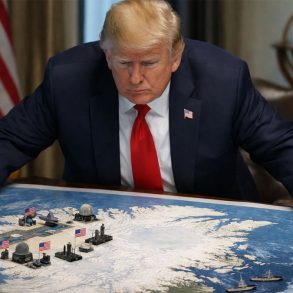Mark Carney, the former central banker turned politician, has won the Liberal Party leadership race in a landslide victory, securing 85.9% of the vote. This overwhelming mandate has placed him in line to succeed Justin Trudeau as Canada’s next prime minister. However, his path to leadership comes at a time of economic uncertainty, tense trade relations with the United States, and shifting political landscapes at home. As Carney prepares to take office, his policies, both domestic and international, will be critical in shaping Canada’s future.
Carney’s victory is historic not only because of the margin but also because he will be the first prime minister in Canadian history to take office without having previously held an elected position. His success signals a desire among Canadians for fresh leadership, but his lack of political experience could also be a liability as he navigates the demands of governance.
Who is Mark Carney?
Mark Carney is a name well-known in global financial circles. Born in Fort Smith, Northwest Territories, and raised in Edmonton, he has built a career at the highest levels of international finance. A Harvard graduate with a doctorate in economics from Oxford, Carney worked at Goldman Sachs before entering public service. He served as the Governor of the Bank of Canada from 2008 to 2013, playing a key role in stabilizing the economy during the global financial crisis.
His expertise was so widely recognized that he was recruited to become the Governor of the Bank of England, making him the first non-British head of the institution in its three-century history. There, he oversaw Britain’s economy during the tumultuous Brexit transition. His ability to manage economic crises has earned him a reputation as a steady and pragmatic leader, though his transition from economist to politician remains untested.
Despite his impressive resume, Carney has never held an elected public office. This lack of political experience could pose challenges as he seeks to build consensus in Parliament and connect with everyday Canadians.
Carney’s Key Domestic Policies
Carney has positioned himself as a centrist who will focus on economic stability, cost-of-living relief, and environmental responsibility. He has made several key pledges:
- Eliminating the Consumer Carbon Tax: While maintaining Canada’s commitment to addressing climate change, Carney has promised to remove the unpopular consumer-facing carbon tax and replace it with a system that holds major corporations accountable.
- Halting the Capital Gains Tax Hike: In a move designed to encourage investment and economic growth, Carney has vowed to prevent further increases to capital gains taxes.
- Expanding Housing Initiatives: He has pledged major investments in housing, seeking to address the affordability crisis that has gripped Canada.
- Limiting Government Expansion: Carney has criticized the rapid growth of federal spending under Trudeau and pledged to cap the size of government.
- Removing Trade Barriers Between Provinces: Strengthening interprovincial commerce will be a key priority as Carney seeks to boost economic efficiency and competitiveness.
“My government will keep our tariffs on until the Americans show us respect,” Carney declared in his victory speech. “Americans want our resources, our water, our land, our country. Think about it, if they succeeded, they would destroy our way of life.”
Canada-U.S. Relations and the Trump Factor
Carney’s rise to power comes at a time of strained relations between Canada and the United States. Former U.S. President Donald Trump, now back in office, has imposed fresh tariffs on Canadian goods and made provocative remarks suggesting that Canada should become the 51st state of the U.S.
Trump’s aggressive trade policies have played a significant role in galvanizing Canadian nationalism, which in turn has bolstered Carney’s popularity. Political analysts believe that Trump’s actions have inadvertently strengthened the Liberal Party, which was trailing the Conservatives in polls just months ago.
“Canadians are really feeling angry, hurt. Canada feels so disrespected in this relationship right now,” said Jamie Tronnes, executive director of the Center for North American Prosperity and Security.
Carney has made it clear that he will stand firm against Trump’s trade policies. In his victory speech, he said, “Donald Trump, as we know, has put unjustified tariffs on what we build, on what we sell, on how we make a living. He’s attacking Canadian families, workers, and businesses, and we cannot let him succeed – and we won’t.”
Carney’s Relationship with Trump
Carney’s interactions with Trump have historically been limited but adversarial. As the Governor of the Bank of England, he was openly critical of Trump’s economic policies and his approach to climate change. Now, as prime minister, he is taking an even more confrontational stance.
“We didn’t ask for this fight, but Canadians are always ready when someone else drops the gloves,” Carney said. “The Americans should make no mistake – in trade as in hockey, Canada will win.”
The question remains: will Carney’s tough stance on Trump yield results, or will it escalate tensions? Some analysts believe his economic expertise could make him an effective negotiator, while others warn that his rigid stance could push Canada into a prolonged trade war.
What Are People Saying About Him?
Carney’s leadership has sparked mixed reactions. Within the Liberal Party, he is seen as a competent, steady hand who can navigate Canada through economic turbulence. His financial expertise and distance from Trudeau’s declining popularity have reinvigorated Liberal support.
However, the opposition has been quick to attack him. Conservative leader Pierre Poilievre accused him of being an out-of-touch elite who lacks real political experience. “As Trudeau’s economic advisor, Carney made Canada weaker and poorer,” Poilievre said. “And working for himself, he made America stronger and richer.”
Poilievre’s allies argue that Carney’s globalist background makes him disconnected from the struggles of everyday Canadians. Meanwhile, U.S. politicians have expressed concerns that Carney’s aggressive trade stance could further strain Canada-U.S. relations.
Can Carney Work with Trump?
The relationship between Carney and Trump will be one of the defining aspects of his leadership. While Carney’s rhetoric has been combative, realpolitik may require a more diplomatic approach. Canada remains highly dependent on trade with the U.S., and maintaining a working relationship with Trump will be crucial.
Former Prime Minister Jean Chrétien commented on the difficulty of predicting Trump’s behavior, saying, “You know, I don’t know. Do you know? Does anyone know? I’m not a medical doctor or a psychiatrist. He changes his mind every two or three hours.”
Looking Ahead
Carney’s tenure as prime minister begins under extraordinary circumstances. With a general election expected in the coming months, he will need to solidify public support quickly. His ability to manage Trump’s trade war, address Canada’s economic challenges, and navigate domestic political divisions will define his legacy.
While his financial credentials provide him with a unique advantage, the transition from economist to politician will test his ability to connect with voters. If Carney can successfully rally Canadians around his vision, he may not only win the coming election but also redefine Canada’s role on the global stage.








